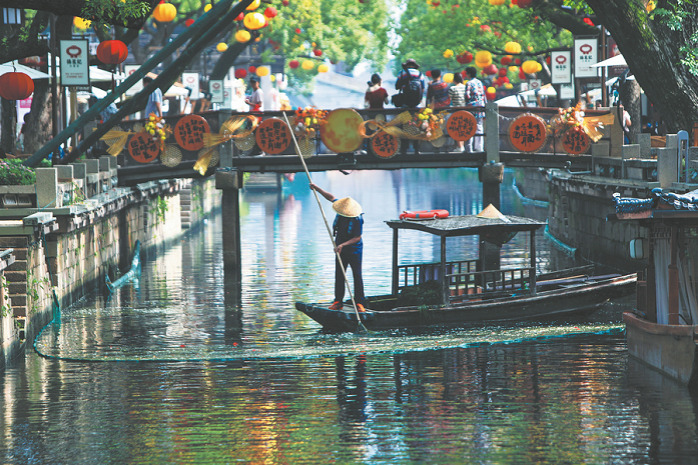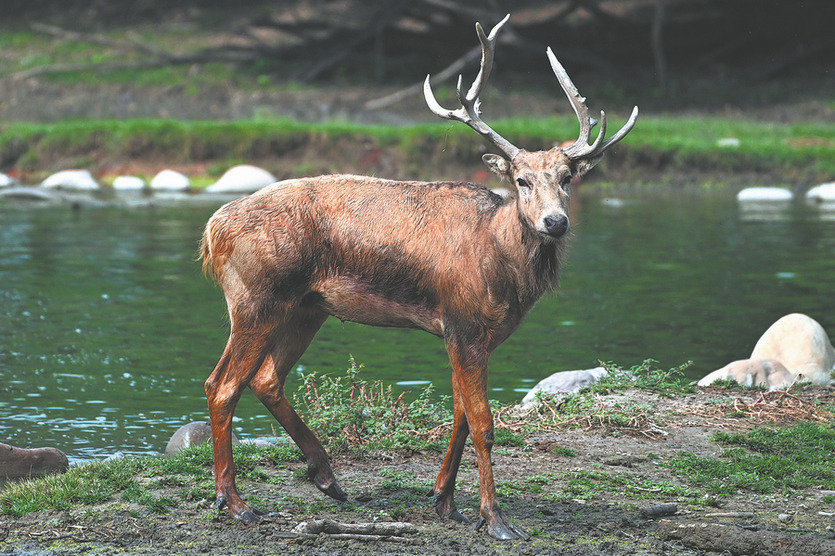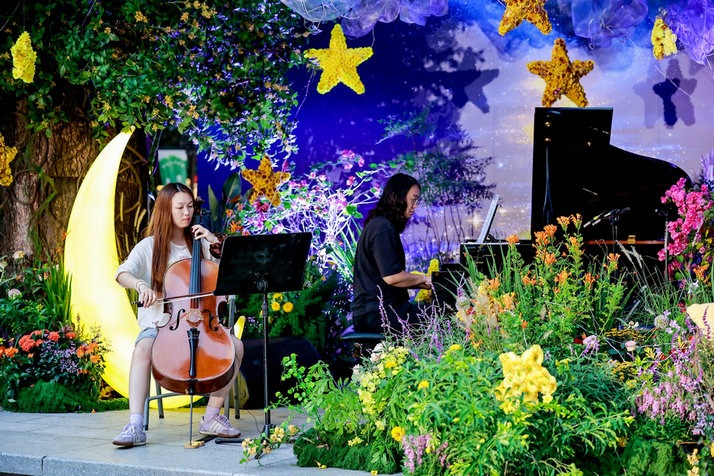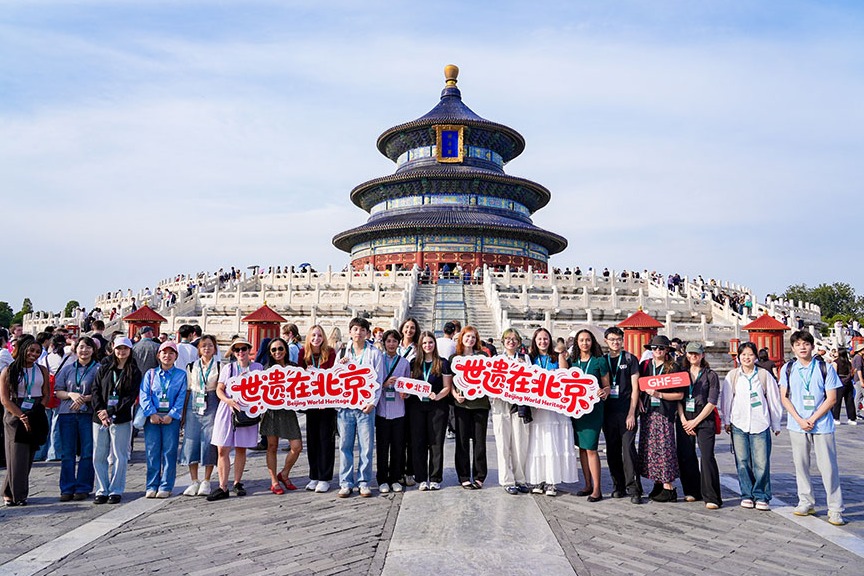Ginkgo paradise


According to Yang, earlier she and her husband used to depend mainly on agriculture, including growing tobacco, and taking part-time jobs. But each of them could earn only a little more than 10,000 yuan a year then.
Also, according to Yang, in the beginning, the only economic benefit from the ginkgos was the nuts, which the local residents collected to sell to vendors. The ginkgo nuts produced in the area are popular for their special glutinous taste, which is believed to be the result of the local soil conditions.
But as tourism has boomed in recent years, the locals have developed more products from the ginkgo nuts.
Now, chicken stewed with ginkgo nuts is a famous specialty.
The nuts have also been made into snacks, and the ginkgo flower, which used to be discarded, is now sold at more than 200 yuan per kilogram.
Even ginkgo leaves are made into decorative hats and sold to tourists.
Zheng Siyin, a 74-year-old, looks after a stall near her home in the village, and earns more than 100 yuan a day during the peak season from selling things, including ginkgo nuts.
Her family has six old ginkgo trees, with the oldest being nearly 500 years.
She collected more than 200 kilograms of ginkgo nuts this year, with each kilogram yielding about 50 yuan.
"I am old and cannot do farming anymore. But I can still earn a little bit to help my children thanks to the stall," she says, adding that the price of the local ginkgo nuts has gone up too thanks to demand from the tourists.
Meanwhile, both her sons are running an agri-tainment business, she says.
According to Huang Chaojin, the director of the local community committee, more than 150 agri-tainment businesses have been started in the village, and many villagers have opened shops selling specialties near their homes.
Last year, the total revenue generated by tourism in the village was 60 million yuan, and the average income of the villagers was 12,000 yuan, which is a lot higher than the surrounding areas, says Huang.
"Eco-tourism has greatly enhanced the lives of the villagers," says Huang.
In 2010, 2,500 people out of the village's 4,000 residents were living below the poverty line.
In comparison, the number has been reduced to 105 this year.
While seeking further development of tourism, the village has made protection of the ginkgo trees, especially the old ones, a priority.
"Now all the villagers are grateful for the benefits brought by the ginkgo trees. And they avoid hurting trees which are more than a 100 years old while renovating or rebuilding their houses," says Huang.
"The harmonious coexistence of man and his environment, including the trees and wildlife, is now a village consensus."

































